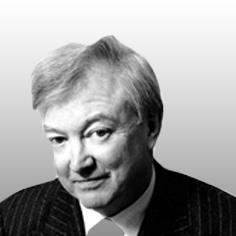When an expert witness - a guardian of trust and knowledge - is proved wrong in court, it is tempting to try to turn psychologist and wonder what was going through his head

The expert witness in this trial dropped one of the biggest clangers I have ever come across. At first glance you and I would condemn him, castigate him. Then I began to ask: “Why?” Why did he behave in this way? And the more you dig, albeit in the court judgment, the more interesting it becomes.
Litigation, arbitration and even adjudication rely frequently on the evidence of an expert in whatever topic is in dispute. Now be careful, the starting point is that witnesses (you, me, the bloke in the other car) are only permitted in the witness box to testify to facts – what they saw, heard, felt, sniffed. It is a no-no to give opinion. But opinion evidence can be given if the tribunal gives permission. The judge or arbitrator asks himself whether opinion evidence will help. Typically in construction we might benefit from the opinion of a piling, roofing or glazing expert; they are unconnected with the actual project or events, but invited into the litigation to help the court because that person is, well, an expert in his field … highly qualified technically and so on.
In this case, the expert had completed more than 100 expert reports in contemplation of litigation and had been in the witness box on different cases more than 30 times. Any legal team would have been glad to get him on board. His report for the court ran to 70 pages. It included an interview with a key person – his opinion was about that person’s abilities. At the conclusion of the report, he made standard declarations to confirm he would give evidence on oath and would not mislead or had not misled the court. He also confirmed the report was in accord with the Code of Practice for Experts.
The interview was recited in the expert’s report. It was, or was said to be, what was said in the interview. Comments were reinforced via speech marks in italicised text attributed to the interviewee. But what the expert didn’t know was that the interviewee had secretly recorded the interview. In court our expert witness was cross-examined. The judge said: “When pursued in cross-examination it was revealed that extensive parts of the report, which purport, by the conventional use of quotation marks, to be direct quotations from the witness, are in fact nothing of the kind. They are a collection of recollections and impressions compressed into phrases credited by the expert and attributed to the interviewee. They convey to the reader of the report that they represent the authentic voice of the interviewee.”
The expert had been in the witness box in different cases more than 30 times. Any legal team would have been glad to get him on board
The tribunal went on: “It is very likely that a judge reading such quotations in the report of an experienced expert witness will at least start with the strong presumption that they have been accurately and fairly reported. It is inconceivable that this expert with this experience would not have appreciated this. The report is heavy with direct speech when in truth almost none of it is. The expert conceded that he took no verbatim notes, conceded too that a number of sentences attributed to the interviewee are inaccurate.”
Why would he do this? It’s tempting to suggest he is a hired gun; such partisan experts once plagued litigation. I reject that notion. The courts come down hard on anyone playing that game. The expert witness nowadays has to be independent, impartial and owing first duty to the court. Nor do I accept this fellow was careless, even reckless, in compiling the report. There is a clue expressed by a barrister at the trial: the expert “may have shown an over confidence in his own professional judgment and ability that was indifferent to the correct assessment process”.
I buy that. This fellow really is an expert in his field. He really is experienced in litigation and I reckon (okay, I will guess) that he weighed up the interviewee, weighed up the circumstances and became convinced of what he firmly believed to be true, then said so to the court. It is possible he may have seen this sort of thing umpteen times before and his report is likely to be saying: “Here we go again.” It is a dangerous mentality; a trap for the very experienced.
Psychologist Daniel Kahneman’s writings have recently become better known. He talks about heuristics and biases and looks at the way humans behave when making decisions. This criticised expert witness could potentially fit into numerous bias categories: confirmation bias, which is a tendency to focus on one’s preconceptions as a shortcut in thinking; knowledge bias, a belief that you are better informed than others; and superiority bias, which means considering oneself highly qualified and outranking others. Other forms of bias affecting a witness might include amour-propre bias (high opinion of self); conceit bias – self-esteem, vanity, self-importance – and overconfidence bias which gave the witness freedom from doubt.
And I tell you this. Don’t condemn this expert fellow. There is no bad faith, no ill will. He thinks he is right, never mind any real analysis. This experience will make him the best expert in the world.
Tony Bingham is a barrister and arbitrator at 3 Paper ∫√…´œ»…˙TVs, Temple



























No comments yet